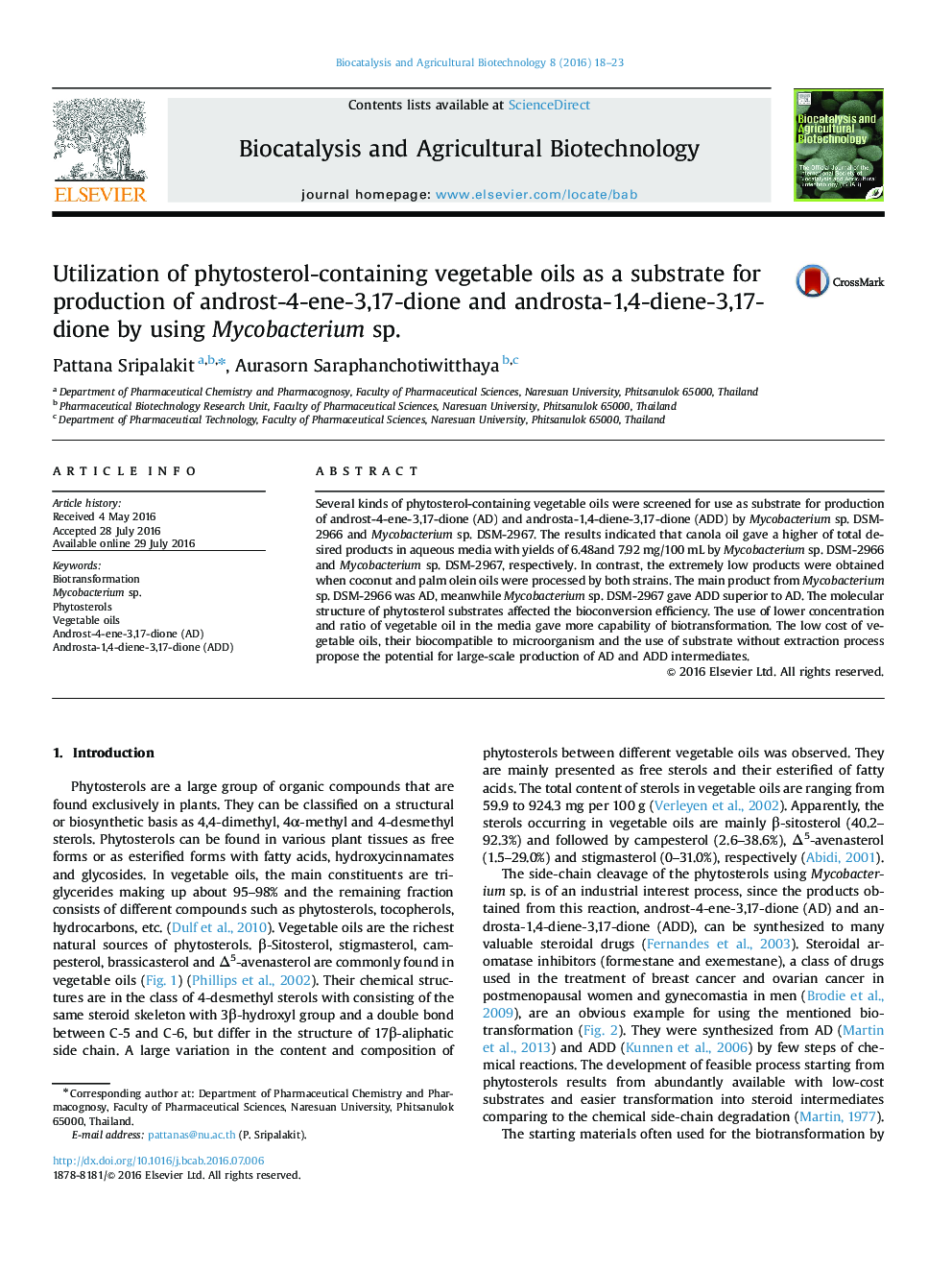| Article ID | Journal | Published Year | Pages | File Type |
|---|---|---|---|---|
| 2075274 | Biocatalysis and Agricultural Biotechnology | 2016 | 6 Pages |
•Phytosterol-containing vegetable oils can be directly converted to AD & ADD by Mycobacterium sp.•A large variety of phytosterol content between different vegetable oils can cause a wide range of AD & ADD products.•The use of lower concentration and ratio of vegetable oil in the media gave more capability of biotransformation.
Several kinds of phytosterol-containing vegetable oils were screened for use as substrate for production of androst-4-ene-3,17-dione (AD) and androsta-1,4-diene-3,17-dione (ADD) by Mycobacterium sp. DSM-2966 and Mycobacterium sp. DSM-2967. The results indicated that canola oil gave a higher of total desired products in aqueous media with yields of 6.48and 7.92 mg/100 mL by Mycobacterium sp. DSM-2966 and Mycobacterium sp. DSM-2967, respectively. In contrast, the extremely low products were obtained when coconut and palm olein oils were processed by both strains. The main product from Mycobacterium sp. DSM-2966 was AD, meanwhile Mycobacterium sp. DSM-2967 gave ADD superior to AD. The molecular structure of phytosterol substrates affected the bioconversion efficiency. The use of lower concentration and ratio of vegetable oil in the media gave more capability of biotransformation. The low cost of vegetable oils, their biocompatible to microorganism and the use of substrate without extraction process propose the potential for large-scale production of AD and ADD intermediates.
Graphical abstractFigure optionsDownload full-size imageDownload as PowerPoint slide
